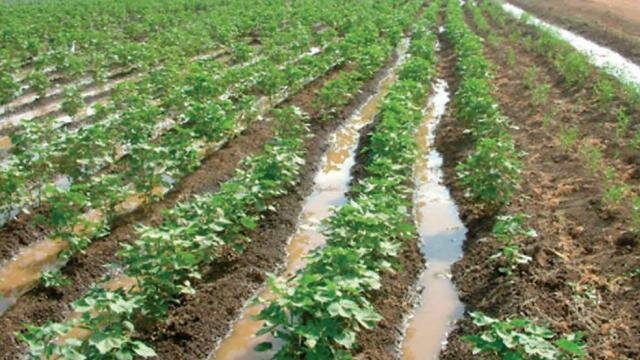Some economist in Africa see that the spreading of peace culture and stop of wars are at the top priority to fight poverty and hunger in the continent, as well as
solidarity of the African continent, exchange of experiences, and attention to Agriculture.
Are the African countries intend to benefit and exploit the huge lands in Sudan to implement FAO programme on fighting poverty and hunger, malnutrition, improvement of production means, and creating suitable job opportunities for youth?
FAO Regional Conference for Africa, which runs in Khartoum from 19-23 February, under the slogan “Sustainable Development for Agricultural and Food Systems in Africa”
Agriculture is the Only Solution for Africa
Sudanese Agriculture Minister, Dr. Abdul Latif Al-Ijaimi, confirmed, in his address, the importance of availability of satisfaction that agriculture is the lonely solution to the continent problems, and that Africa is suffering from drought and conflicts on resources and other factors that led to displacement to cities, indicating that the productivity is still weak, despite the improvement of production in the continent, which led to increase of unemployment, malnutrition among children and women that requires exerting of efforts, plans, and research.
Minister of Animal Wealth, Bushara Jumaa Aror considered FAO as one of the international organization that seeks to provide the required policies and data to countries ,participating them in vital issues, development of agriculture, and how to provide food to the countries, calling for unification of efforts, and taking the required policies to face challenges, besides mechanisms and methods for agriculture, calling for developing other means of partnerships lead to production and exchange of experiences, insisting on coordination between countries to fight hunger, poverty and malnutrition, saying that securing of food subject to peace achievement.
Bukar Tijani, FAO Assistant-Director General and Regional Representative for Africa, said, “The most recent estimates of undernourishment, presented in FAO’s ‘2017 Africa Regional Overview of Food Security and Nutrition’, showed good progress in reducing the prevalence of undernourishment until 2010. However, there has been little improvement since 2010 and, the prevalence of undernourishment appears to have risen from about 21 percent to just under 23 between 2015 and 2016, while over the same period, the number of undernourished rose from 200 million to 224 million.”
Mr. Tijani who was addressing the Senior Officers’ session of the 30th Africa Regional Conference in Khartoum, Sudan, noted that the goal of ending hunger can be achieved by scaling up joint efforts and fostering partnership towards resource mobilization, including the promotion of South-South cooperation. He added, “I can assure you that, FAO is strongly committed to support the African Union (AU) Malabo Declaration and the commitment to end hunger by the year 2025’’.
He further encouraged all stakeholders across the region and beyond to work together to create more synergies, consolidates existing collaborations, and forges new alliances for an inclusive growth and a shared prosperity in Africa, as envisioned by the AU Agenda 2063.
The conference with the theme “Sustainable development of agriculture and food systems in Africa: improving the means of production and the creation of decent and attractive employment for youth,” is an important forum for policy dialogue and debate on the future direction of food security and nutrition, agricultural transformation in Africa as well as setting priorities for the regional governance of FAO actions in the 2018-2019 biennium.
The forum also provides an opportunity to review the progress on a set of recommendations made during the 29th session of the African Regional Conference held nearly two years ago in Abidjan, Côte d’Ivoire.
The conference, which runs this week in Khartoum, will see the region’s stakeholders find ways of effectively leveraging youth employment opportunities in agriculture and rural sectors of their economies.
The discussions will also revolve around improving the business environment, providing young people with the right skills and education, and increasing their active participation in policy processes.
Mr. Tijani recalled that main recommendations of the last ARC fall within the five main areas: Value chain development, youth employment and agri-food system development; Promotion of sound institutional and policy and regulatory frameworks; Disaster management/resilience building; Resource mobilization from Green Climate Funds (GCF); and Country programming frameworks (CPFs) contributing to the achievement of FAO’s Strategic Objectives as well as the Agenda 2030 for Sustainable Development and its goals (SDGs) and Malabo Declaration.
The 30th ARC, which runs from the 19 to 23 February 2018, will be the setting for stakeholders across the region and beyond to work together to create more synergies and complementarities, consolidate existing collaborations, and forge new alliances for an inclusive growth and a shared prosperity in Africa, as envisioned by the AU Agenda 2063.
About the Conference
The FAO Regional Conference for Africa is held once every two years, in the years in which the FAO General Conference does not meet in regular session. The attendance of the Regional Conference is usually at the Ministers of Agriculture level. Observers from countries outside the region, international, regional and Arab organizations, are also invited to the Conference.
The functions of the Regional Conference are to hold consultations at a high level, to indicate the special problems of the region and the priority areas, which should be taken into account in preparing the Programme of Work and Budget for the next biennium, as well as in relation to longer term programme objectives of the organization to the needs of the Region. It also aims to undertake consultations on the means by which the countries of the region can solve their own problems through the use of their own resources; and on the volume and nature of the external aid required to implement their food and agricultural development plans.
-
Daily Arabic Newspapers Headlines Wednesday 21st February, 2018Next >


